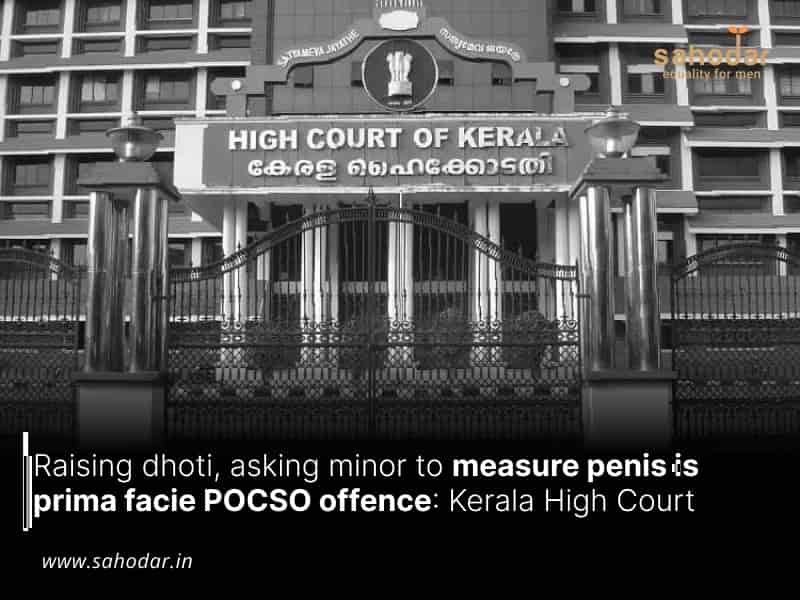The Court made it clear that its observations are of a prima facie nature and the establishment of guilt or otherwise in each case is a matter to be decided at trial.
The Kerala High Court recently noted that a man raising his dhoti, exposing his penis to a minor, and instructing the child to measure it would, on the face of it, constitute sexual harassment of a minor, which is punishable under Section 11 of the Protection of Children from Sexual Offences Act (POCSO Act).
Justice A. Badharudeen also said that such actions toward a minor girl would also likely be an offense under Section 509 of the Indian Penal Code (IPC), which covers acts meant to insult a woman’s modesty through words, gestures, or actions.
“Lifting of dhothi to show his private part and then asking the victim to measure his penis, are the allegations. The same would squarely attract Section 11(1) of the POCSO Act as well as under Section 509 of IPC, prima facie,” the Court stated.
However, the Court noted that both the POCSO and IPC provisions require an element of intention: sexual intent in the case of POCSO and the intent to insult modesty for the IPC.
The Court made it clear that its comments are just initial impressions and that deciding if someone is guilty or not will happen during the trial.
The Court made the observation while considering a petition moved by a man who was accused of getting the attention of a minor by lifting his dhoti and asking her to measure his penis. The minor immediately complained to her mother but by then, the petitioner was allegedly seen fleeing from the scene.
Criminal charges were then brought against the petitioner. He asked the Special Court in Perumbavoor to drop the case, but his request was turned down.
This made him go to the High Court, asking to cancel the Special Court’s decision and stop all legal actions against him.
The petitioner’s lawyer argued that there was no clear evidence against him and that the victim’s account did not show any sexual intent or intention to insult the minor’s modesty.
However, after reviewing the minor’s statement about the petitioner’s actions, the Court decided that his behavior qualified as sexual harassment under both the POCSO Act and the IPC.
The Court also noted that, according to Section 30 of the POCSO Act, courts assume the accused is guilty until they can prove otherwise clearly.
“So culpable mental state on the part of the accused shall be presumed by the Court and it is for the accused to prove that he had no such mental state with respect to the charge for the offence in the prosecution,” the Court explained.
So, the Court chose to dismiss the petition and keep the Special Court’s decision to not release the petitioner.
The petitioner was represented by advocates Eldho Paul and Tessy Jose.
Senior Public Prosecutor Renjit George appeared for the State.

